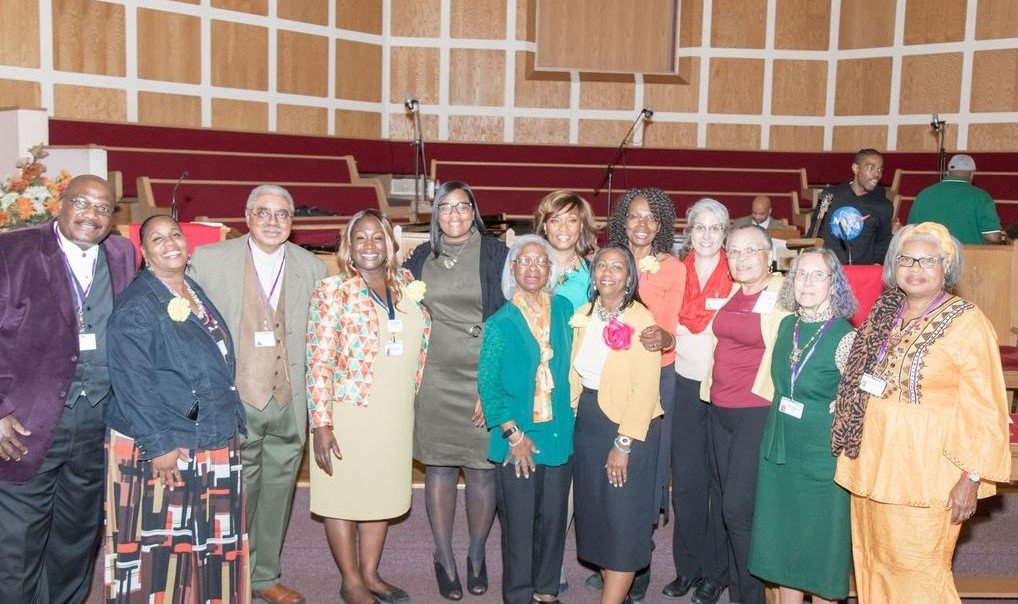Inspiring Teams to Engage in Health Equity Interventions to Improve Care for Black Patients and their Caregivers

CAPC’s Project Equity is an ongoing initiative to address inequitable care—and health care experiences—for certain groups of people living with serious illness who have disproportionality experienced poor care. Project Equity launched with an environmental scan to better understand the health care experiences of Black people living with serious illness, and their families, and how to bridge disparities in access to palliative care services. The scan uncovered hundreds of interventions that are moving the needle on health equity, and CAPC will continue to share the most effective and replicable interventions.
CAPC’s Key Action Areas for Health Equity
CAPC’s work on Project Equity is focused on four key areas of action:
- Addressing gaps in access to palliative care services for underserved patient populations
- Equipping clinicians to be aware of, and address, disparities in their clinical practice
- Using market research to develop public and professional awareness strategies that promote equitable care for patients with serious illness
- Providing a national platform for palliative care leaders of color
In January, CAPC invited two palliative care leaders to present and facilitate an informal group discussion about their initiatives to address disparities for Black patients living with a serious illness. Through sessions like this, CAPC is working to both inspire palliative care teams with replicable health equity interventions and equip clinicians to identify inequities in their own programs. Presenters encouraged participants to implement interventions to move the needle on equity within their own spheres of influence.
The invited faculty, co-facilitator, and event host all identify as Black, Indigenous, or Black/Afro Latina. They acknowledged a level of camaraderie and transparency in the safe space that is not always present in our professional settings that may lack diversity. Both speakers and attendees noted that representation matters.
Educating Teams about Equity via Patient Cases
Arika Patneaude, MSW, LICSW, APHSW-C, is the Director for Bioethics and Palliative Care at Seattle Children’s Hospital, an organization that is demonstrating commitment to infusing equity into the DNA of their care delivery. Similar to adult palliative care, racial biases can affect pediatric palliative care delivery and care experiences. The pediatric palliative care team at Seattle Children’s intentionally worked to embed equity conversations into their practice by 1) starting daily rounds reviewing patient cases and intentionally acknowledging how equity intersects with care delivery, and 2) organizing longer focused discussions on equity and access issues (usually with a case study) into their monthly interdisciplinary meetings. Their hospital has made a public and internal commitment to become an antiracist institution through education, data collection, and action, so the pediatric palliative care team did not have to persuade their leadership to implement this equity-focused practice change. Their low-cost and easy-to-implement approach is to embed equity directly and consistently into the continuous learning culture of their interdisciplinary team meetings.
The team considered whether some families may be receiving ‘more’ or preferential treatment (whether consciously or unconsciously). In addition to discussing patient cases, they are utilizing free and low-cost resources such as the Little Black Library to ensure team members have a similar baseline of equity education.
Key insights to this intervention approach: Conduct a baseline assessment to track changes in the team’s knowledge and attitudes about health equity; set expectations for all team members to continue their learning journey; and identify gaps in care to begin to reduce the inequities in care delivery.
Key Takeaways
Question: How can team members communicate inclusivity to patients and their families? In particular, how can they ensure that it comes off in a genuine manner?
Answer: The visibility of inclusion (e.g., wearing a rainbow lanyard or Black lives/physicians matter pins) helps to create a space for those with historically marginalized identities to find a point of connection / similar experience and allyship.
Question: What are some strategies that white providers can use to acknowledge the earned mistrust of the health system among some of their Black patients?
Answer: Showing up with openness and finding genuine human connections is key (e.g., asking “How has your day been so far?” and giving patients a chance to answer) instead of jumping into a clinical discussion right away. Trust can only be earned through a sincere, consistent, and demonstrated effort.
Trust can only be earned through a sincere, consistent, and demonstrated effort.
Question: How can the palliative care team address the equity missteps and oversights that come up in the team meeting?
Answer: Examine the biases contributing to the narratives that are perpetuated about certain patients and families from other providers. It is critical to acknowledge how clinicians are speaking about, and talking to, patients and their families. Equally important, we must all hold team members and leadership accountable for errors in behavior, which requires cultivating a safe space for giving and receiving feedback.
Care Navigation Services to Promote Trust and Provide Holistic Support to Black Patients and Families
A number of studies prove the many benefits to utilizing care navigators in health care interventions, especially for Black people diagnosed with a serious illness. Cynthia Carter Perrilliat, MPA, Co-founder and Executive Director at AC Care Alliance, shared how her organization’s community-based care navigators model is helping to achieve equity. AC Care Alliance was founded in awareness of the confidence and trust that the Black church has established in communities that are often hesitant to engage with the health care system. The Advanced Illness Care Program (AICP) addresses the care needs of community members (who are predominantly Black or African American) in alignment with their spiritual preferences. In this model, care navigators are trained in community outreach and holistic advanced illness care with an extra layer of support. Through a series of meetings and phone calls over approximately six months, the care navigator helps participants by providing trusted resources and referrals, as well as tools and training to promote participant empowerment and specific coping skills (e.g., how to communicate effectively with their primary care providers). At its inception, AICP relied on pastors and community outreach ministries to connect navigators with the participants, but now the program is able to enroll patients via the EMR through partnerships with health plans. 1,500 people have been served by the program since 2016.
Using a Five Cornerstone approach, which includes: 1) spiritual needs 2) health needs 3) planning for advance care 4) social needs and 5) caregiving needs, this model is able to address the full spectrum of how a serious illness impacts community members. The care navigator model is uniquely positioned to empower participants to access appropriate care, both within the health care system and from social/non-medical services in the community. Additionally, this model has a bi-directional impact of meeting the unmet needs of those suffering while also continuously enhancing the skills of the care navigator workforce. Care navigators reported high satisfaction in the training provided by AC Care Alliance and the impact they have working with their patients.
Key Takeaways
Question: What strategies are effective for developing strong community partnerships?
Answer: First, it is crucial to form strategic relationships with key figures in the community in which you work. Trust between faith-based organizations, community members, and health institutions must exist for any such program to operate. Additionally, organizations must do their best to ensure the community they serve is represented in the clinicians and staff they employ.
Organizations must do their best to ensure the community they serve is represented in the clinicians and staff they employ.
Question: How do the care navigators connect with the patients and caregivers in order to meet their needs?
Answer: Utilizing both storytelling and story listening helps care navigators build trusting relationships, learn participants concerns, and tailor the AICP to meet their needs. In Ms. Carter Perrilliat’s words, “Listening to others’ truths helps us understand each other, so only when we begin to create the space for these lived experiences to be heard can we begin to understand them and learn from them.”
Continuing on the Health Equity Journey
As evidenced by the participation and engagement during this session, there is a desire within the palliative care field—from clinicians to business managers—to learn about the methods being used to reduce health disparities. By showcasing these two initiatives, attendees learned about initiatives operating at both the micro and macro levels. One a large scale care navigation intervention, and the other a modification on the interdisciplinary team meeting, both making a meaningful difference in promoting equitable care among Black patients living with a serious illness. The work is valid and necessary at all levels, and palliative care teams should do what they can to create even small positive change.
Health Equity Resources
● Health Equity Workshop Series: Key Insights to Implement Equity-focused Models
● Health Equity in Palliative Care Toolkit
● CAPC Innovation Hub | Health Equity
● CAPC Virtual Office Hours: Achieving Health Equity and Reducing Implicit Bias in Palliative Care (Members-Only)
Thank you to The Arthur Vining Davis Foundations for their generous support of this special event, and to Arika Patneaude and Cynthia Carter Perrilliat for their time in serving as faculty and sharing their expertise with our audience.

